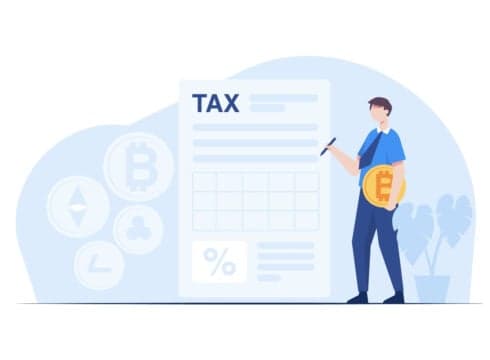The inclusion of cryptocurrency in the Union Budget 2022 provides some reassurance to investors, instilling a sense of security
The imposition of a crypto tax in India has attracted new investors to the crypto market, as they perceive it as a tacit recognition of the asset class by the government
Around 1.7 Mn users have migrated from domestic centralized VDA exchanges to foreign platforms, moving over $3.8 Bn in trading volume
Inc42 Daily Brief
Stay Ahead With Daily News & Analysis on India’s Tech & Startup Economy
The ongoing debate regarding the legitimacy of cryptocurrency has prompted investors to carefully consider whether or not to invest in this digital asset. Finally, the inclusion of cryptocurrency in the Union Budget 2022 provides some reassurance to investors, instilling a sense of security.
However, the true nature of this inclusion remains to be determined, as its implications on the financial ecosystem need to be thoroughly examined. It is essential to delve into the depths of the digital ocean and analyze all the facets that will influence the financial landscape.
Navigating The Latest Cryptocurrency Tax Updates
Before drawing any conclusions, it is crucial to comprehend what cryptocurrency is and how the tax policies are outlined in the Union Budget 2022. This enables investors to assess whether investing in cryptocurrencies in India holds substantial profitability potential.
As a virtual asset, cryptocurrency operates in a decentralised network spanning numerous computers. This decentralised nature empowers cryptocurrencies to exist independently, free from the influence of central governments.
By leveraging this distributed network, cryptocurrencies establish a unique digital currency outside the conventional centralised systems.
Let’s briefly go through the key updates in crypto tax:
- Income from the transfer of virtual digital assets, including cryptocurrencies and NFTs, will be subject to a 30% tax. If the buyer’s payment exceeds the threshold limit, tax deducted at source (TDS) will be subtracted at the rate of 1%.
- Crypto investors must include the computed profits and losses in their income reports. Any losses from investing in crypto cannot be offset by other sources of income.
- The tax to be deducted (TDS) on crypto-related transactions will be 5% if any user has not submitted their income tax return in the previous two years, and the amount of TDS was INR 50,000 or more in each of those two prior years.
- Only the cost of acquisition will be considered for reporting earnings from the transfer of virtual assets, with no allowance for any deductions.
How Does Crypto Tax Impact Investors?
Here are some ways in which crypto tax impacts investors:
Favorable Influence On The Investment Ecosystem
The imposition of a crypto tax in India has presented certain advantages for investors, leading to higher trading volumes in recent weeks. Tax introduction has attracted new investors to the crypto market, as they perceive it as a tacit recognition of the asset class by the government.
Moreover, some traders have taken advantage of the prevailing system, which permits set-off and carry forward of capital losses in cryptocurrency, allowing them to book profits.
Additionally, certain investors are closing their positions to begin the new year with a fresh start. In a way, implementing a crypto tax brings an end to the prolonged uncertainty that has plagued the Indian crypto sector for the past five years.
Unfavorable Influence On The Investment Ecosystem
The implementation of India’s tax regime on virtual digital assets (VDAs) has led to a significant shift among Indian crypto traders. In fact, around 1.7 Mn users have migrated from domestic centralized VDA exchanges to foreign platforms, moving over $3.8 Bn in trading volume.
This transition has negatively impacted tax revenues and reduced transaction traceability, contradicting the intended goals of the policy. Furthermore, the VDA tax structure is expected to deter international investors and further diminish the competitiveness of Indian centralized VDA exchanges compared to international counterparts.
Wrapping Up
In conclusion, the introduction of crypto taxation in India has been met with mixed reactions. While the industry acknowledges the move, concerns remain regarding high tax rates and the potential impact on brain drain and reduced innovation. Stakeholders must familiarize themselves with crypto taxation guidelines and regulations to navigate the evolving landscape effectively.
Note: We at Inc42 take our ethics very seriously. More information about it can be found here.


